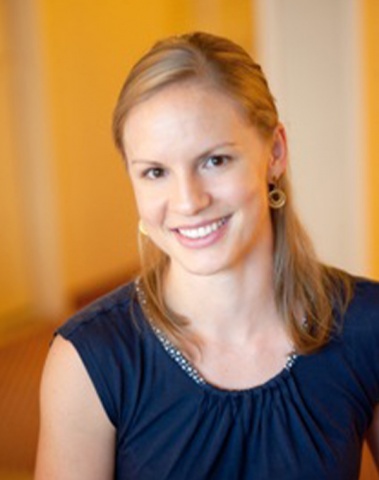I can see multiple sides of an issue in a deeper way, and understand where different stakeholders might be coming from, and strive to articulate complex coastal and ocean policy issues in an accessible way.”

Nicole Fernandes
First job out of FS: Program Examiner: Natural Resource Policy - Office of the President
As a policy analyst for the National Oceanic and Atmospheric Administration (NOAA), Nicole Fernandes (MPP/MS '08) analyzes the environmental, political, and programmatic impacts of proposed coastal resilience and science policies, including those related to marine aquaculture (farmed fishing), climate change, and national ocean policy. From an early age, Fernandes knew she wanted to work in environmental conservation to protect public places and enable communities to benefit from those spaces. She was drawn to the Ford School because of the opportunity to pursue a dual degree in environmental studies and public policy. Fernandes believes that bridging interdisciplinary fields, along with the Ford School’s practical and applied curriculum gave her a leg-up in her career and a unique perspective to support positive change. Additionally, the Ford School’s Graduate Career Services was instrumental in connecting her with a job at the White House’s Office of Management and Budget following graduation.
Leveraging her environmental science expertise with her policy implementation skills, Fernandes seeks to understand the policy, programmatic, and environmental impacts on a range of coastal science and coastal management issues. She routinely analyzes and informs legislative and Executive Office proposals and collaborates closely with NOAA colleagues to shape these policies. Fernandes also supports NOAA leadership to engage with congressional, White House, federal agency colleagues, and non-governmental partners, such as developing presentations they use to communicate about these policies.
Farmed fishing is one area of this work. “Marine aquaculture can increase sustainable production of our seafood, reduce the seafood trade deficit and create food security domestically and internationally while improving environmental sustainability of farmed seafood and set the standard globally,” said Fernandes, “However, there is controversy and misunderstanding about aquaculture science. I appreciate the opportunity to help inform Congress and other stakeholders about the benefits of aquaculture.” She supports NOAA leadership and coordinates closely with federal partner agencies to better understand and communicate the potential economic and environmental benefits and risks, identify regulatory efficiencies, and enable evidence-based decisions that support industry and communities.
Fernandes also supports colleagues working on climate change resilience who help communities prepare for natural events and climate-related stressors, such as sea level rise, increased hurricane frequency, and other extreme weather events by facilitating communication with NOAA leadership, Congress and the White House. Additionally, Fernandes collaborates with subject matter experts who develop data tools that policy makers, regulators, industry, academics, and others can use to inform decision-making about ocean uses, like commercial fishing and renewable energy,
By pursuing a public policy degree, Fernandes said she learned important communication skills to work with a wide range of stakeholders. “I can see multiple sides of an issue in a deeper way, and understand where different stakeholders might be coming from. I continuously strive to articulate complex coastal and ocean policy issues in an accessible and easy-to-understand way.”
Fernandes enjoys non-policy aspects of her job, such as serving on an internal diversity and inclusion advisory council that aims to recruit and retain employees who reflect the nation’s demographics, and leading meditation sessions to support a positive workplace culture and improve employee performance and wellness.
Fernandes’ passion for public policy is personal. Fernandes says that this understanding, coupled with opportunities for applied learning and simulations, such as the Ford School’s Integrated Policy Exercise, “prepared me to think about issues more critically.”
Recalling a group consulting project conducted in her final semester, Fernandes shares that the applied opportunities at the Ford School are timely, relevant, and local. “Not only was the project engaging, our analysis was used by the City of Ann Arbor to make a decision about the future of emergency dispatch.”